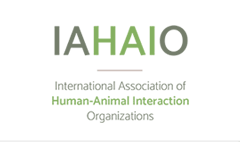Abstract
The current pandemic has brought a lot of social and economic strains to families worldwide, as well as making a huge impact on the long- term care of companion animals. The current study explored differences in the attachment level of owners toward their pets and their perceived stress before and during the pandemic in China. The questionnaire, besides demographic information, included a modified version of the Companion Animal Bonding Scale (CABS) and the original form of the Perceived Stress Scale (PSS). A total of 261 questionnaires were collected. The respondents did not show any significant differences in attachment level toward their companion animals before and during the pandemic, nor in relation to the type of pet (dog or cat). The study showed that when pet owners experienced emotional difficulties such as perceived stress/anger and lack of control, the attachment toward their pets was compromised, indicated by an increase of the negative aspects of the bond. These factors also were positively associated with the pandemic and with strict and medium levels of lockdown. Moreover, the pet owners were more likely to sleep with their companion animals when they felt a higher perceived lack of control, and this behavior was higher in women than in men. On the other hand, attachment toward the pets increased when there was more than one animal in the household, and when the respondents had difficulties in providing food supplies to their companion animals. It is critical to understand how companion animals might affect the lives of their owners during times of crisis, in order to provide people with suitable support and to avoid animal abandonment.
Recommended Citation
Platto, Sara; Serres, Agathe; Normando, Simona R C; Wang, Yanqing; and Turner, Dennis C.
(2022)
"Attachment and Perceived Stress among Pet Owners before and during the Lockdown in China,"
People and Animals: The International Journal of Research and Practice: Vol. 5
:
Iss.
1,
Article 3.
Available at:
https://docs.lib.purdue.edu/paij/vol5/iss1/3


